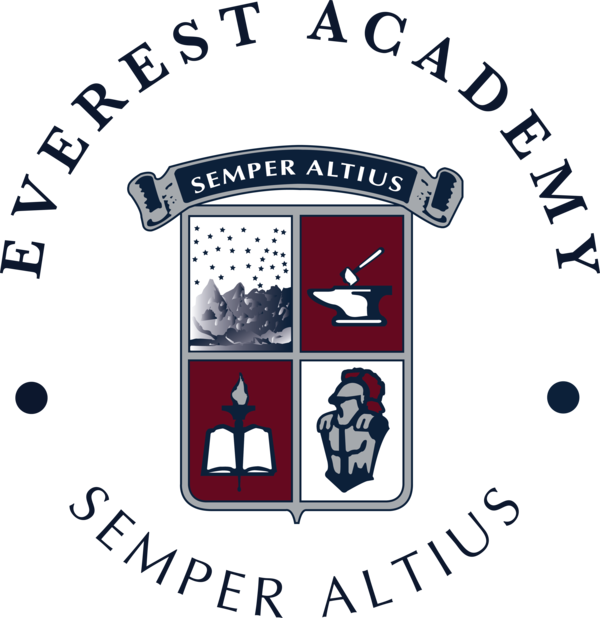Early Childhood Education
At Everest Academy in Lemont, our Pre-K 4 program offers a dynamic and supportive environment for children who turn 4 by September 1st. Focused on advancing cognitive, social, and emotional growth, our curriculum promotes interactive learning and critical thinking. With a low teacher-to-student ratio, we provide personalized attention to nurture each child's individual strengths and interests.
Below, you’ll find an overview of the key skills your child will develop in our Pre-K 4 program, encompassing language arts, math, science, geography, and Catholic formation, all designed to equip them for a successful transition to kindergarten.
Pre-K4 Skills
Catholic Formation
- Understand basic attributes of God
- Recognize the story of creation
- Know basic Old Testament figures, such as Adam and Eve, Jonah, Noah, Daniel, and Moses
- Know simple reasons for Advent, Christmas, Lent, and Easter
- Know basic New Testament stories
- Develop a love for Blessed Mother Mary
- Develop a love for Christ
Language Arts
- Maintain sustained attention
- Listen and follow directions
- Retell and sequence stories
- Participate in choral recitation
- Use effective public speaking skills on grade level
- Orally present with expressions, clarity, and in complete sentences
- Decode one-syllable words
- Effectively use phonemic awareness
- Use book and print awareness
- Understand the English cueing system
- Use reading strategies to read simple text
- Respond to text read
- Use comprehension skills
- Understand various types of literature: fairy tales, short stories, fables, legends
- Understand elements of a story
- Develop fine motor skills and use writing utensils properly
- Use lined paper properly
- Copy words and sentences
- Choose a topic for a story and add details
Math
- Solve various one-step story problems
- Order numbers 1-20
- Estimate numbers of objects in a set
- Predict likelihood of events
- Count, read and write numbers 1-50
- Recognize sets
- Use ordinal positions 1st-10th
- Compare quantities up to 20
- Use computation vocabulary
- Know fact families up to 10
- Add and subtract whole numbers up to 10
- Write number sentences
- Understand basic measurement concepts
- Understand basic temperature concepts such as cold, hot, warm, etc.
- Understand money values
- Understand clock concepts and read analog facts to the hour
- Understand basic geometry concepts, such as position, orientation, figures: circle, square, triangle, rectangle, oval, star, cross and solids: blocks, marbles
- Identify various simple patterns
- Collect, sort, classify, organize, compare and contrast, represent and interpret data
History
- Understand basic historical concepts
- Understand broad categories of time such as long ago, present, today
- Compare and contrast yesterday and today
- Use terms for location
- Reconstruct the recent past
- Develop knowledge of historical figures
- Acquire information from historical sources
- Communicate the past
Geography
- Understand basic location and direction
- Use a simple globe and map
- Use a simple political and world map
- Identify various places on a map and globe such as land and water
- Know basic land formations
- Know basic water formations
- Identify community characteristics
- Identify features of the earth
Science
- Develop basic concepts of the scientific process
- Identify and define variables in an experiment
- Develop scientific thinking skills such as analysis, synthesis, evaluation, application, questioning, communication, and problem-solving
- Develop basic scientific habits such as curiosity, creativity, cooperation, initiative, and perseverance
- Use simple scientific tools
Physical Education
- Understand basic physical activity concepts
- Participate in physical activities
- Understand movement concepts and principles
- Develop gross motor skills
- Develop small motor skills
- Develop team-building skills
- Understand physical activity provides enjoyment, challenge, self-expression, and social interaction






